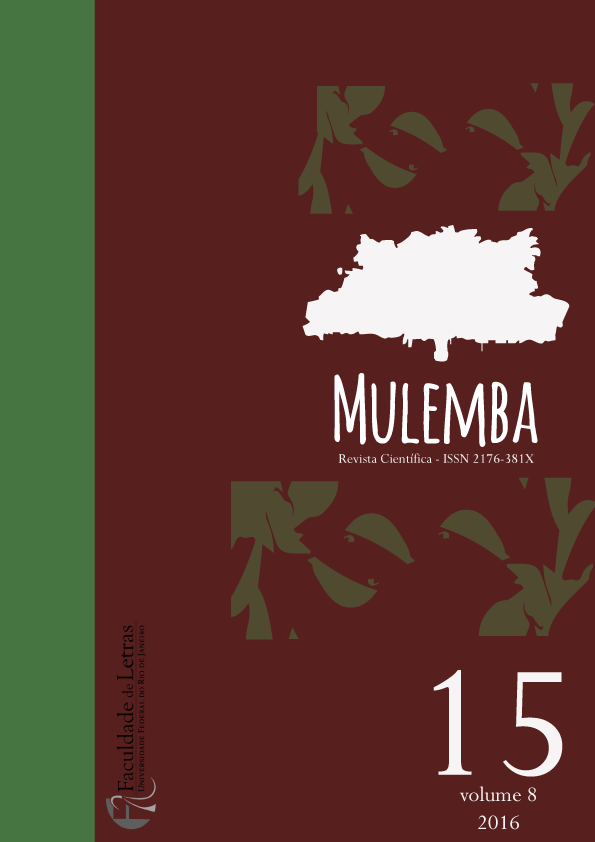Las autoridades tradicionales y la guerra civil mozambiqueña en <i>Ventos do apocalipse</i>, de Paulina Chiziane
DOI:
https://doi.org/10.35520/mulemba.2016.v8n15a5337Palabras clave:
Paulina Chiziane, guerra civil, socialismo, tradición, MozambiqueResumen
Ventos do apocalipse, de Paulina Chiziane, trata de la guerra civil en Mozambique. Después de la independencia mozambiqueña, el partido-estado Frelimo adoptó un gobierno de orientaciones socialistas, reflejando un aparato organizacional y político europeo. Sucede que antiguos líderes locales, insatisfechos con la pérdida de poder y con abandono de tradiciones, sacan provecho del despreparo de la Frelimo para gobernar las comunidades locales y se organizan en torno a Renamo, haciendo aguda la crisis social que siguió a la independencia. La confrontación entre el proyecto de nación del partido-estado Frelimo y los liderazgos tradicionales delinean un panorama apocalíptico dentro de la novela. Chiziane discute el papel y el lugar de la tradición en el contexto de la creación de una identidad nacional que desconsideraba la organización política, económica y cultural preexistente.
Descargas
Descargas
Publicado
Número
Sección
Licencia
Los autores que publican en esta revista concuerdan con los siguientes términos:
- Los autores mantienen los derechos autorales y conceden a la revista el derecho de primera publicación, con el trabajo simultáneamente licenciado bajo la Licencia Creative Commons Attribution que permite compartir el trabajo con reconocimiento de la autoría y publicación inicial en esta revista.
- Los autores tienen autorización para asumir contratos adicionales separadamente, para distribución no exclusiva de la versión del trabajo publicada en esta revista (ej.: publicar en repositorio institucional o como capítulo de libro), con reconocimiento de autoría y publicación inicial en esta revista.
- Los autores tienen permiso y son estimulados a publicar y distribuir su trabajo online (ej.: en repositorios institucionales o en su página personal) en cualquier momento antes o durante el proceso editorial, ya que eso puede generar alteraciones productivas, así como aumentar el impacto y la citación del trabajo publicado (Vea El Efecto del Acceso Libre).

